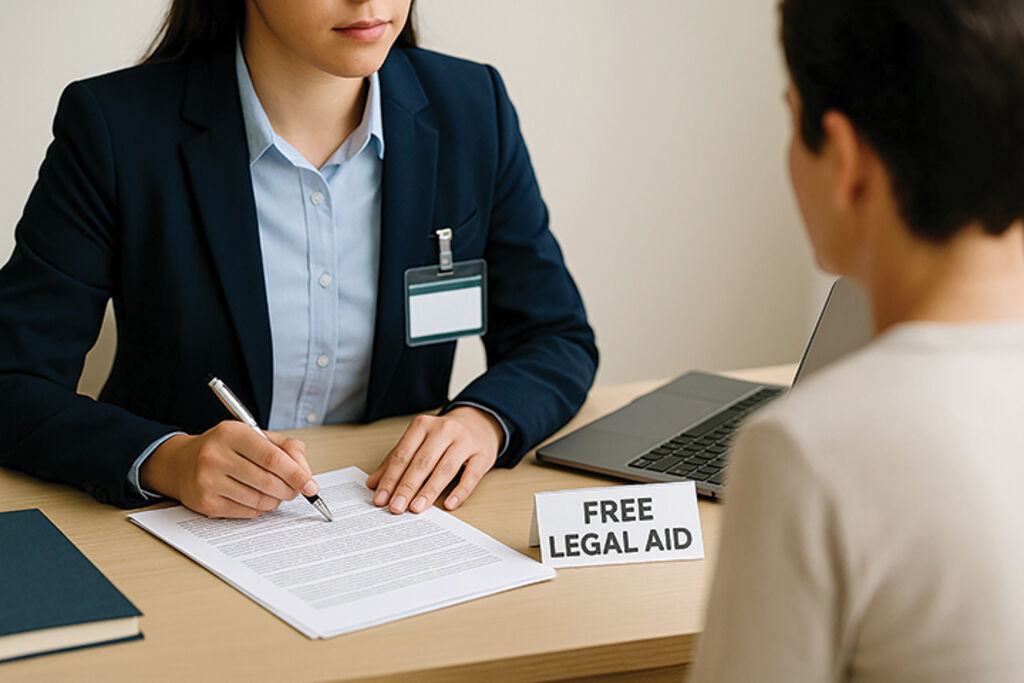 |
| As specified in Decree 76/2023/ND-CP, foreigners residing in Vietnam may access legal aid on equal footing with Vietnamese citizens__Photo: VLLF (AI-generated photo) |
My husband and I are both foreigners currently residing in Vietnam. Will I be eligible for legal aid if I experience domestic violence? If so, am I allowed to invite my legal representative to participate in the legal aid process?
Yes, as a foreign national residing in Vietnam, you are eligible for legal aid if you experience domestic violence.
Under Article 12.1 of Government Decree 76/2023/ND-CP, which guides the implementation of the 2022 Law on Domestic Violence Prevention and Control, victims of domestic violence, regardless of nationality, are entitled to:
• Temporary shelter and basic living support;
• Medical care and treatment;
• Psychological and life skills counseling; and,
• Legal aid provided by state-run legal aid centers or accredited organizations.
Therefore, you can access legal aid on equal footing with Vietnamese citizens, unless otherwise restricted by treaties to which Vietnam is a party.
Furthermore, under Article 12.3 of Decree 76, you have the right to invite your legal representative or a representative from the agency or organization where you work to participate in the legal aid and protection process, including the implementation of preventive and support measures.
You may report domestic violence incidents to the local police, commune-level People’s Committee, or relevant social organizations for prompt support and intervention.
What types of preventive measures are applicable to foreigners residing in Vietnam who commit acts of domestic violence?
Under Article 12.2 of Decree 76, in case a foreigner residing in Vietnam commits an act of domestic violence, competent authorities may immediately apply necessary measures to compel him to terminate the act. In addition, those present at the scene may, depending on their capacity and the nature of the act, request the foreigner to immediately cease the violent behavior.
The violator may also be subject to the following measures:
• Compulsory appearance at the police office: The head of the commune-level police office of the locality where the incident occurs has the authority to summon the foreigner. This applies if the victim is a child, a pregnant woman, a woman raising a child under 36 months of age, an elderly person, a person with disabilities, or someone incapable of self-care; or when there is a reasonable basis to believe that the act has caused or may continue to cause harm to the victim’s health or life. If the individual fails to appear as summoned, police officers may employ supporting tools in accordance with law to bring him to the police office.
• Contact prohibition: The Chairperson of the commune-level People’s Committee in the locality where the event occurs may impose a contact ban of up to three days in the following cases:
(i) At the request of the victim, his guardian, legal representative, or a competent agency, organization or individual, when the act is deemed to cause or threaten to cause harm to the victim’s health or life. If the request is made by a third party, it must be consented to by the victim or his guardian or legal representative;
(ii) When the act of domestic violence poses a threat to the victim’s life.
• Support for behavior change: This measure applies if the act is not serious enough for criminal prosecution. In this case, the Chairperson of the commune-level People’s Committee will arrange for professional staff to educate and help the violator cease their behavior through the provision of necessary knowledge and skills.
• Community-based admonition: This measure will apply when the violator, aged 18 years or older, within 12 months, has committed acts of domestic violence twice or more which, however, do not reach the threshold for administrative handling or sanctioning, or when the violator, after having been sanctioned for an act of domestic violence, falls into recidivism.
• Compulsory performance of community service: The Chairperson of the commune-level People’s Committee of the locality where the violator resides may issue a decision requiring the latter to perform community service. This may include planting and maintaining public greenery, cleaning and repairing roads, community houses or other public facilities, or carrying out other tasks aimed at improving the living environment. However, all assigned tasks must fall within the list of activities discussed and agreed upon by the residential community in accordance with the law on grassroots democracy practice and approved by the Chairperson of the commune-level People’s Committee.
In addition, other preventive measures and administrative sanctions under the Law on Handling of Administrative Violations, as well as protective measures for victims as prescribed in the Criminal Procedure Code, may also be applied.
The foreign violator will also be required to cover various expenses, including the costs of hiring interpreters, legal counsel, and bodyguards for the victim. He must also pay for other expenses related to the implementation of protection and support measures. These payments must be made in accordance with applicable financial regulations; where no specific provisions exist, payments will be based on actual invoices and receipts.
It should be noted that foreigners residing in Vietnam who commit acts of domestic violence also have the right to invite representatives of their employing agencies or organizations, or their legal representatives, to participate in the implementation of the aforementioned preventive and protective measures.- (VLLF)









